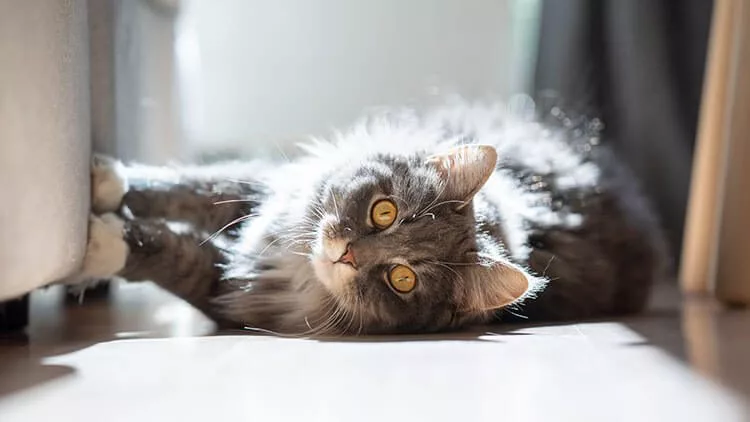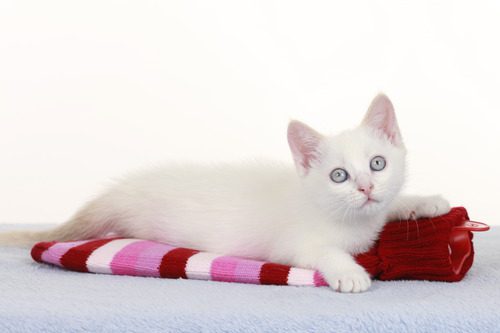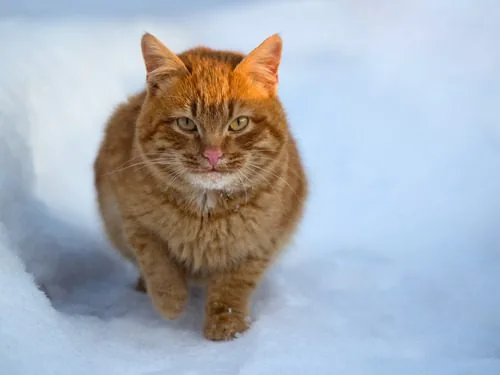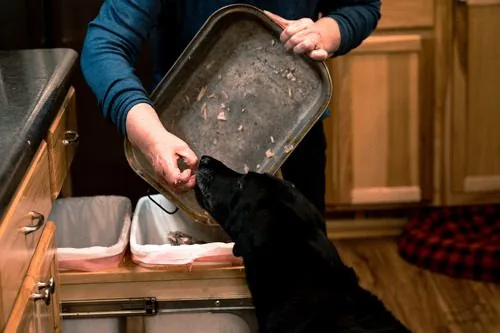Sometimes our pets get sick, and vomiting is a symptom that every pet owner will have to deal with at one time or another. Although some cases of vomiting do require a trip to the vet, many times vomiting in cats is just a sign of an upset stomach. However, many cat owners may be wondering: why is my cat vomiting?
Many cats vomit because they have eaten something that they shouldn’t have. This could be because the food or object was not meant to be eaten by cats or because your cat has a food intolerance or allergy. Sometimes vomiting can also be a sign of an illness or a medical condition in cats as well.
In this article we will be giving you all the reasons why cats vomit. In addition to this, we will also be explaining when you should take your cat to the veterinarian for vomiting and describe how vomiting in cats is treated. Without further ado, let’s get right into it!

Reasons Your Cat May be Vomiting
There are many reasons why your cat may be vomiting. Possibly the most common causes for vomiting in cats is from having a food allergy or intolerance or because they ate something that they shouldn’t have. However, illnesses, intestinal parasites, and constipation are also some common causes for vomiting in cats. In some rarer instances vomiting can be a sign of a more complicated and serious medical condition in cats as well. Here are the reasons that your cat may be vomiting.
Your Cat Has a Food Allergy or Intolerance
Food allergies and intolerances can commonly cause cats to vomit. The most common form of food intolerance in cats is lactose intolerance, which is when a cat has a bad reaction after eating dairy products like milk or cheese. Usually, a cat with lactose intolerance will have an upset stomach, and this usually includes bloating and diarrhea as symptoms. However, vomiting can be a sign of lactose intolerance as well, especially if they only do so after eating dairy product.
Food allergies can cause a cat to vomit as well, and this is usually paired with your cat being itchy and scratching himself. Cats with food allergies can be found grooming themselves excessively for comfort, which can cause hair loss and even skin infections if left untreated. Some common places a cat with food allergies will try to scratch include:
- Around the face and ears
- On the belly and around their groin
- On their armpits, legs, and paws
- Around their rectum (causes “scooting”)
In addition to vomiting and itchiness, your cat may also have diarrhea because of having a food allergy. Some of the most common food allergies in cats include allergies to dairy, beef, chicken, and fish. However, there are more possible allergens that can affect cats.
An Illness
Cats can get sick too, and many of these illnesses can cause vomiting. Since there are a wide variety of illnesses that can make cats sick, we will not be listing all of them here. However, oftentimes vomiting may be paired with additional symptoms. If you suspect that your cat is vomiting because he is sick, then you should take them to the veterinarian as soon as possible.
Your Cat Ate Too Quickly
Think about it, if you were to eat your meal as fast as you can get sick right? Well, some cats get so excited around mealtime that they lose all self-control and eat like they have never seen food before, and this can cause them to throw up their meal. If your cat does this, then it is recommended to either feed them in smaller portions spread out throughout the day or to feed them in a specialized dish that is designed to slow down a cat’s eating. This should stop them from vomiting after every meal.
Intestinal Parasites
Intestinal parasites can also cause a cat to vomit. However, this vomiting is usually excessive, and it can be paired with other symptoms as well. This can usually be easily diagnosed by a vet through a fecal sample. Luckily, they are usually treatable as well, especially when caught early. Some intestinal parasites that can cause vomiting in cats include but may not be limited to:
- Tapeworms
- Hookworms
- Roundworms
- Whipworms
Your Cat Ate Something They Shouldn’t Have
Sometimes cats eat something that they cannot digest or something that is toxic to them. Throwing up after eating these kinds of things is a natural response. If you suspect that your cat has eaten something they shouldn’t have then you should call your emergency vet immediately. You may need to take some First Aid steps before making the trip to the vet.
Constipation
Things have to come out somehow, and sometimes vomiting can be a sign of extreme constipation. If your cat is vomiting while constipated, it is recommended that you take them to the vet immediately. This is because this could be a sign that something is blocking your cat’s digestive tract, which may need a vet’s care to remedy.
Other Medical Conditions
Sometimes other medical conditions can cause vomiting as well. Although these diseases are often paired with other symptoms, you should still take your cat to the vet to ensure that your cat does not have a more serious condition if he is found vomiting often. The following health conditions can potentially cause vomiting in cats.
- Diabetes
- Hyperthyroidism
- Certain types of cancer
- Irritable bowel disease
- Kidney and liver disease
When to See a Vet About Your Cat’s Vomiting
Although the occasional vomit from your cat is nothing that should necessarily cause too much concern, there are sometimes where you will need to take your cat to the vet for vomiting as soon as possible. These instances include:
- If your cat has been throwing up more than once a week
- If your cat has been vomiting for more than two days in a row
- If you notice signs of dehydration
- If there is blood in your cat’s vomit
- If the vomiting is paired with other worrying symptoms
To book an appointment with Birch Lake Animal Hospital about your cat’s vomiting call (651) 426-2246 or fill out the online form!
Recent Posts
About Birch Lake Animal Hospital
The staff at Birch Lake Animal Hospital seeks to provide the best possible medical care for our highly-valued patients and clients.





